Two student teams from Duke Kunshan competed at the NG+ Developer Conference 2020 with highly innovative projects.
An undergraduate team overcame gaps in their knowledge to develop a video filter, while a pair of DKU graduate students battled time constraints to build a home exercise aid.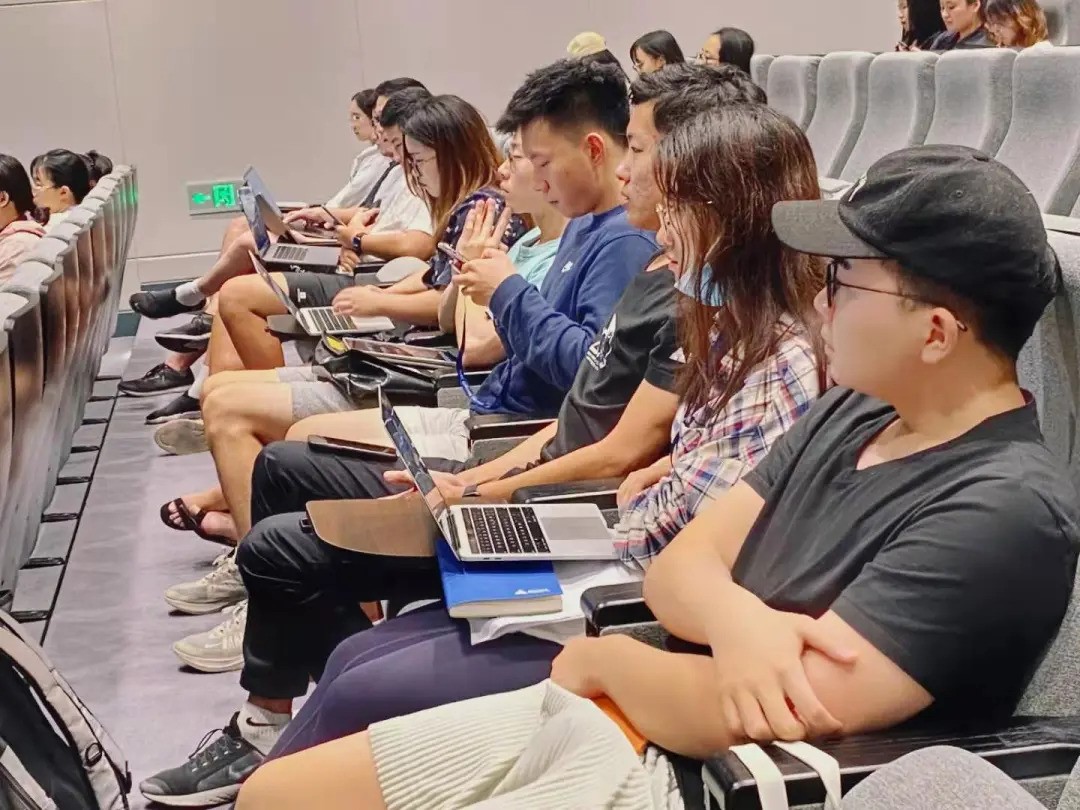
Experts from many of the world’s top tech companies, including Google, Amazon, Microsoft and Alibaba, gathered for the November event, where they discussed the future direction of technology, and watched a selection of presentations by university students that had been whittled down through several previous competition rounds.
Armed with a good idea
DKU students Zi’ang Zhou, Xuejun Zhang and Bolin Song took part in the conference’s undergraduate competition, having developed an “animation-themed online video converter”.
The idea sprung from a spell travelling, where the trio began to wonder if it was possible to make a video-log that could look like Van Gogh’s ‘Starry Night’ or Hayao Miyazaki’s ‘Totoro’, using video filters.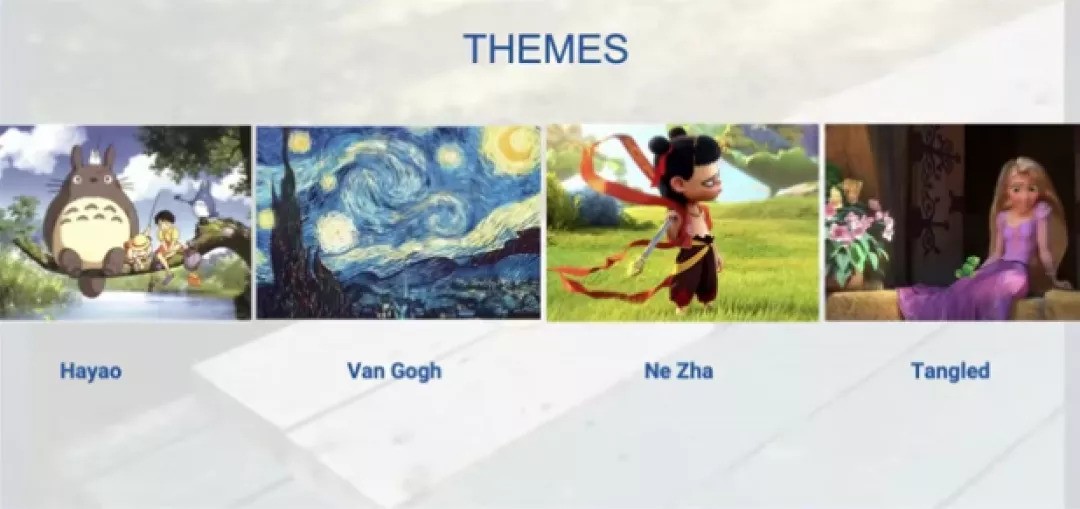
Armed with a good idea, the team lacked the ability to put it into practice, having only taken basic courses in machine learning, and time was also tight, with the conference just a few weeks away. However, they learned fast, taking steps to acquire the necessary knowledge, as well as applying problem-solving skills they had developed at university.
“This is the way of learning that the school has always advocated, to learn actively, from the classroom, but also beyond, and not to limit yourself to what you have learned at university,’ said Zi’ang.
The team began by taking a self-study course in front-end development, offered by Google and Tencent, before building and training the neural network, and then tuning the hyper-parameters.
Starting from scratch, they encountered many difficulties, but Zi’ang was familiar enough with the workings of artificial intelligence to overcome them, having previously joined professor Ming Li’s Speech and Multimodal Intelligent Information Processing laboratory at DKU, where he took part in automatic sound recognition projects.
The team selected four animation movies with different styles as training samples, grabbed a frame every three seconds, and filtered and cropped them to establish four data sets for their software.
Next, they used a deep learning model called Generative Adversarial Networks (GAN), capable of identifying image styles, to train the network.
The good performance of a neural network model not only relies on high-quality training data, but also requires developers to tirelessly test and tune various parameters in the model, supplemented by considerable hardware computing power, which was supplied by DKU.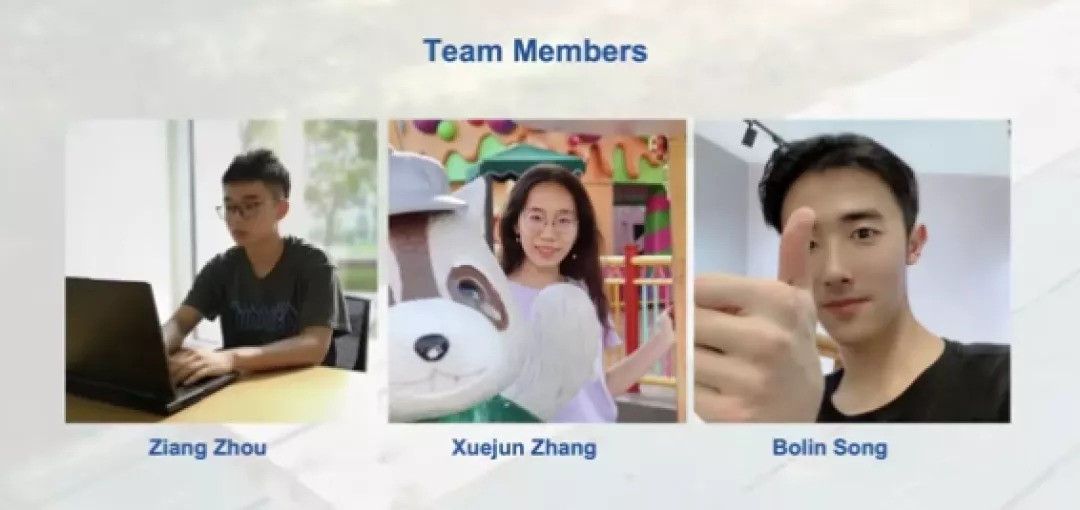
The three team members shared the workload of the project: Zhang focusing on data cleaning and pre-processing, as well as adjusting the newly established training set according to the model’s needs; Song responsible for front-end development so the model could be presented more directly, such as through a web page; and Zi’ang responsible for the back-end algorithm, GAN network training, and hyper-parameter tuning.
The team’s rapid progress impressed conference organizer Hanyu Xiao who said he was, ‘amazed that three undergraduates were able to realize such a technically challenging project in just six weeks.’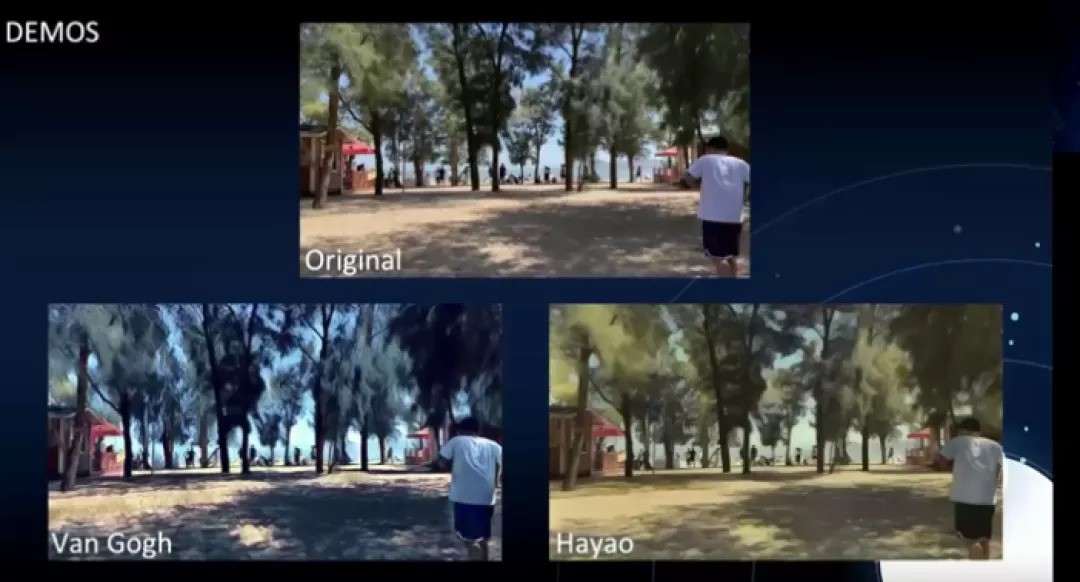
Don’t ask the easy questions
Xuanzhe Zhu and Yiheng Chen represented DKU’s ECE MEng team at the NG+ conference.
Unlike the undergraduate team’s artistically inspired theme, they submitted a more market-oriented project aimed at the “real-time correction of exercise posture,” after observing a burgeoning market for home health aids during the pandemic.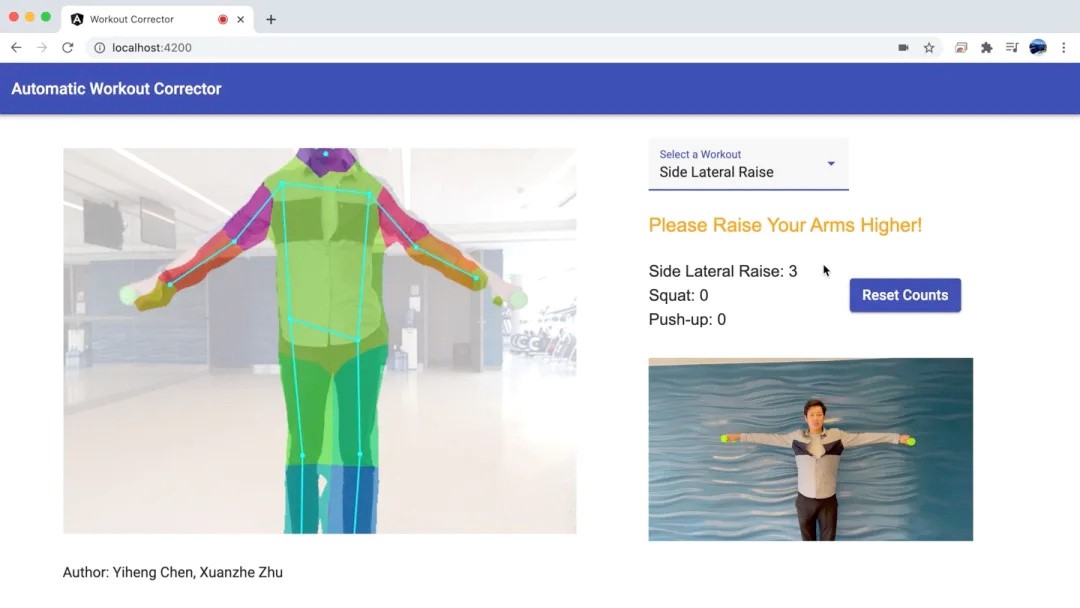
They began using the gym regularly, one repeating the same workout each time, while the other captured his exercise regime on camera.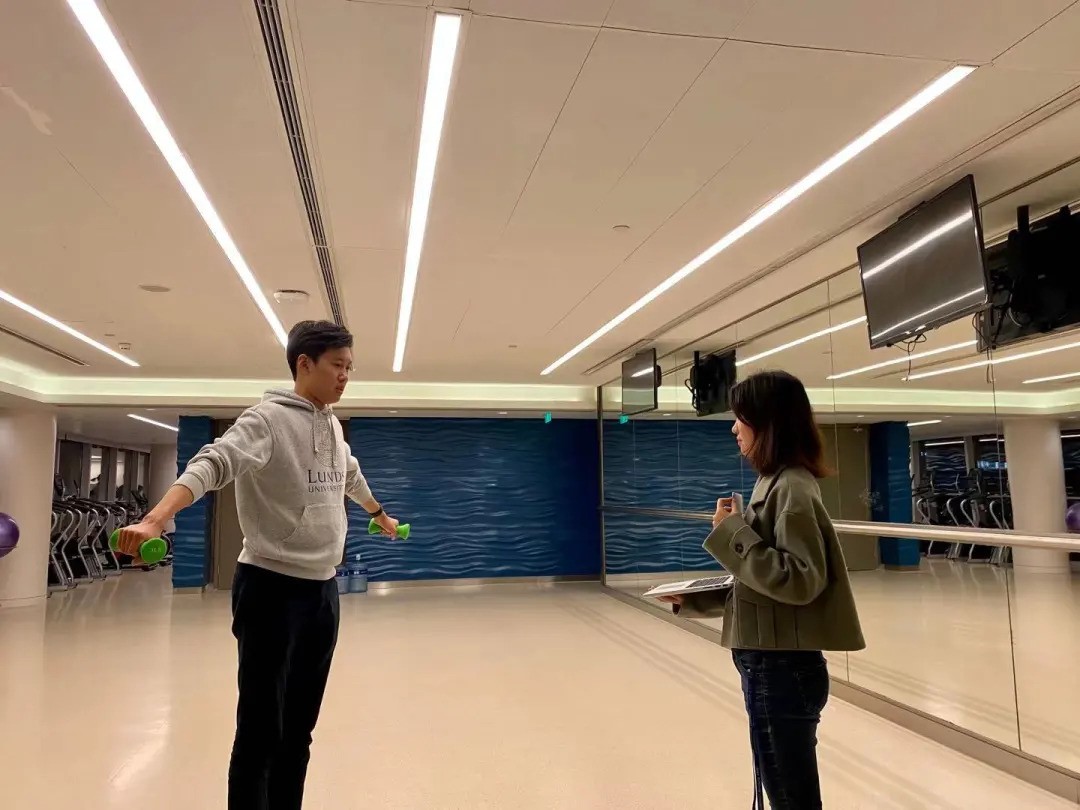
They used Body-Pix, a body segmentation tool developed by Google, to identify key points on the body during exercise, and after completing data collection and processing, developed a set of rules to check for effective workout posture. For example, one of their tests involved calculating and evaluating the angle between legs and the ground.
Time was tight, but the teammates did not panic, armed with the problem-solving skills endowed on them by the education program at DKU.
Xin Li, director of the ECE MEng program at DKU, is an academic with extensive experience in entrepreneurship who knows how to guide students to adapt to the needs of society.
He regularly says, “Don’t ask the easy questions,” preferring to guide students to solve issues on their own, in order to develop their problem-solving skills, although he is happy to lay a few clues along the way.
Taking part in the conference competition was a good way to develop the students’ problem-solving and team-working skills, he said.
The project development process involved a steep learning curve as the teammates absorbed and digested knowledge at a rapid pace, according to Zhu.
‘We slowly got used to solving problems through our own abilities, working with students from different disciplinary backgrounds, and executing our plans within a limited amount of time,’ he said.
The team members plan to continue building on their project by improving functions, introducing more exercise movements and establishing a scoring system.
“A quantitative assessment of movement standards can better help people correct their exercise posture,” said Zhu.
“We hope that with the help of this system, more people will be able to isolate viruses without neglecting their healthy bodies.”
Praising the project and presentation, Xiao said he could ‘see the business background,’ of the students as well as the effort and thought put into it.

